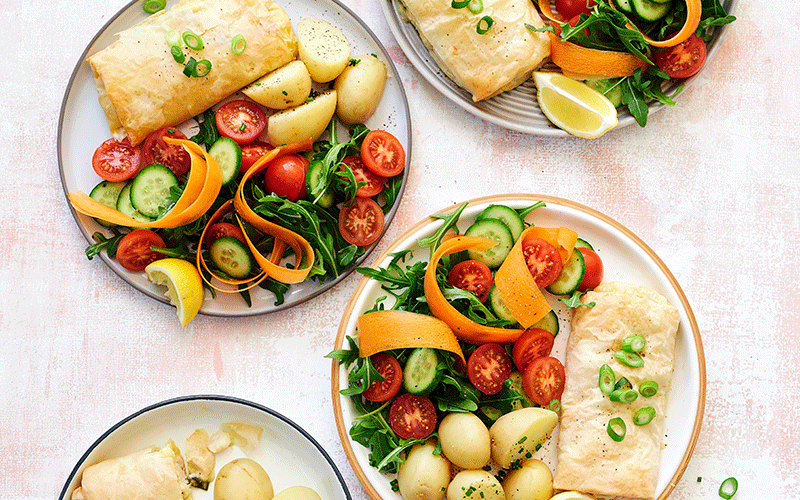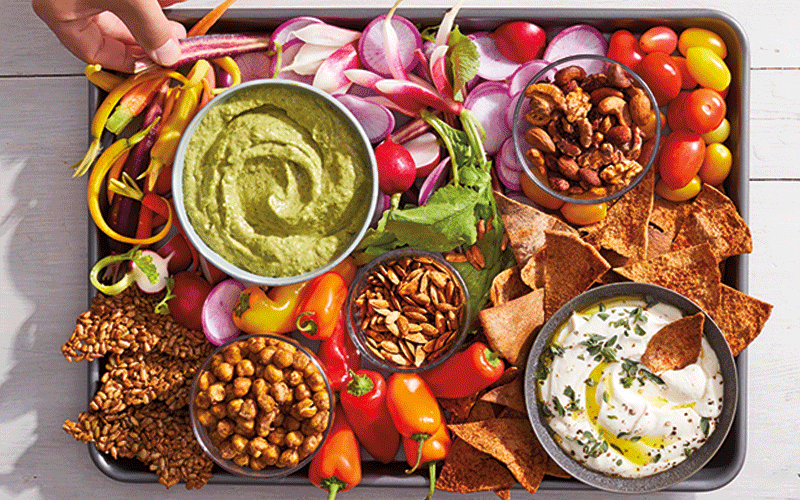12 weight-loss <i>''mistakes''</i> and how to avoid them
Everyone makes some missteps as they work towards their health goals. Here are some big ones to watch out for that could be affecting your progress.

When you think you’re approaching weight loss the right way but the numbers on the scale don’t budge, or move a little and then plateau, it can feel frustrating. “Weight loss is tricky, and having setbacks is normal,” says Dr. Vivek Gupta, M.D., a board-certified obesity medicine doctor in California, United States. Even so, there may be some actions you’re doing that are making it harder for you to see progress. Here are 12 to look out for.
1.Focusing too much on the scale
We get it: Watching that number tick down is exciting. But pegging your success solely on the scale can lead to frustration. “Weight loss isn’t linear,” says Angela Goscilo, M.S., R.D. At times, you may stall or gain weight—and that’s completely normal. According to a study published in the American Journal of Clinical Nutrition, people often hit a plateau at around six months on a weight-loss program. To avoid feeling defeated, focus on non-scale victories, such as being able to hold a plank or play with your kids for longer, says Goscilo. “Celebrating this progress can help you stay motivated.”
2. Eating too little
Reducing calories (kilojoules) as much as possible can seem like a solid plan to lose weight, but it can backfire. “If you don’t eat enough, you’ll feel uncomfortably hungry and tired,” says Goscilo. “This means you won’t make decisions about food in a calm, relaxed manner.” In other words, you’ll be more susceptible to outside influences and more likely to make what Goscilo refers to as “unplanned” food choices that don’t align with your goals.
“This approach is also just not sustainable,” says Goscilo. “It won’t work in the long-term if you’re hungry all the time and feel like you can’t eat meals out with friends because you need to be super restrictive.” That lack of energy and constant hunger from your ultra-light meals can also make it tougher to get motivated to exercise. While there’s no hard-and-fast rule of a calorie count to stay above, Goscilo says to look at your weight-loss speed. Losing more than an average of 1 kilogram a week means you may not be eating enough.
3. Prioritising exercise over sleep
One of the ways to find the time to work out is to set your alarm earlier and cut back on sleep. But if you go that route, try to go to bed a little earlier as well. That’s because getting enough sleep—according to the Sleep Health Foundation - Australia’s leading advocate for healthy sleep, inadequate sleep, of either duration or quality affects 33-45% of adults—can affect your overall well-being and impact your weight. One study from the University of Colorado, showed that people who logged only an average of five hours of sleep a night gained an average of one kilogram in less than a week.
Sleep deprivation triggers changes in the hormones that regulate hunger and fullness, such as ghrelin, leptin, and peptide YY. It also dampens your ability to self-regulate, which makes you more likely to overeat, says Gupta. Aim to get at least seven to eight hours of shut-eye each night. Experts recommend this amount because it’s linked with better health, such as a reduced risk for heart disease, diabetes, obesity, and depression.
4. Forgetting about protein
You know protein is important, but you’re likely eating the majority of it at dinner. Why does that matter? Because when you’re missing protein from other meals or snacks, say by only eating wholemeal toast for breakfast or a green salad for lunch, you can wind up feeling hungry a lot sooner. “Protein gives your meals staying power,” says Su-Nui Escobar, RDN, a registered dietitian nutritionist in Miami, United States. “It takes longer to digest, so you feel fuller for longer.” According to a study in the American Journal of Clinical Nutrition, protein increases satiety more than carbohydrates or fats. Protein also maintains muscle, which burns more calories than fat, says Gupta. One of the best approaches to protein is to eat it throughout the day, so add eggs or Greek yoghurt to breakfast and nuts or cheese with your afternoon snack.
5. Underestimating portion sizes

There’s no question that portion sizes have grown substantially since the 1970s. For example, an average serving of snacks, such as potato chips or pretzels, has gone up 60%. And when people are served more food, they tend to eat more, says Goscilo.
Because it’s so easy to underestimate serving sizes (British researchers found that people think they eat up to 46% less than they really do), Goscilo recommends measuring your portions to figure out exactly how much you’re eating. You don’t need to do this forever, just long enough to learn what an actual portion looks like. Not willing to pull out the measuring cups at the restaurant or office kitchen? We get it. You can also use your hand as a quick guide: A 85g serving of meat is roughly the size of your palm; 30g of cheese equals your thumb; and your fist is about a cup of pasta or fruit.
6. Skimping on water
Some studies suggest that drinking water promotes weight loss, but there’s no definitive research showing that’s true. One certainty: H2O helps you stay hydrated for zero calories and zero sugar. Swapping it for soft drinks and juices can reduce your daily calories, says Escobar.
Sipping water also delivers a long list of other health benefits, including boosting mood, preventing headaches, and fending off fatigue. How much H2O should you drink? Everyone has their own specific needs, but a general rule of thumb is to drink enough so that the colour of your urine is pale yellow.
7. Snacking mindlessly

Snacking is a great way to add nutrients to your diet and take the edge off your hunger. But sometimes people snack out of boredom or wind up getting too many calories from grazing. To prevent overeating, have a snack strategy: Time snacks three to four hours after a meal, and look for satisfying options. “Grabbing a bag of chips or pretzels won’t fill you up for long,” says Goscilo. Look for snacks that have both fibre and protein, such as wholegrain crackers with cheese or Greek yoghurt and fruit.
8. Forgetting to meal plan
Meal planning can sound overwhelming, but it doesn't have to be—and it can make a big difference in both your stress level and how you eat. That's because a meal plan takes the guesswork out of shopping, prepping, and cooking, and ensures that you’ll have a healthy option. “Start by planning out just one meal,” says Goscilo. Make sure that you have all the ingredients and enough time to cook and prepare it. Then, after you’ve mastered planning out one meal in your day, add another meal and snacks.
9. Following trendy diets
When a friend swears by a new fad diet—say, a juice fast or a low-carb or no-carb plan—it may be tempting to give it a whirl too. “But they’re not sustainable over the long run,” says Goscilo. These plans usually work by cutting out entire food groups or avoiding a long list of foods. “That’s not reflective of real life and how people eat," says Goscilo. When you eventually stop the diet, chances are you fall back into your old habits. This can set the stage for yo-yo dieting.
Research shows that the most successful weight-loss strategy is the one that you can stick with. A good approach—one that WeightWatchers centres on—is creating lifelong habits, focusing on eating a variety of nutrient-dense foods, such as fruits, vegetables, wholegrains, and lean protein.
10. Bumping exercise down your to-do list
You meant to hit the gym or go for a long walk, but then your day just got too busy. Sound familiar? Yes, life happens—and sometimes that means workout plans don’t work out. But it’s important to make physical activity as much of a priority as possible: Research shows that it’s one of the biggest predictors of long-term weight maintenance.
One review of 33 studies found that people who exercised regularly and changed what they ate lost 20% more compared to those who only dieted—and were more likely to keep the weight off.
“The best workout is the one that you’ll keep doing,” says Goscilo. Go for a bike ride, have a dance party, or do strengthening moves while you cook. You can also break it up into small chunks: Try squeezing in 10 minutes of exercise (walk the dog, tend to your garden, or race your kids) throughout your day.
11. Not keeping track
Whether you jot it down in a notebook or log it in a weight-loss app, keeping a food diary increases your chances for losing weight—and keeping it off, according to a study in the Journal of the American Dietetic Association. It can help you determine if you need to make any changes, says Kathryn M. Ross, Ph.D., an Associate Professor in the University of Florida’s department of clinical and health psychology, United States. “It’s hard to evaluate progress if you’re not tracking it,” she says. “It’s like trying to go on a road trip with a car that doesn’t have a petrol gauge.”
To get started, take notes on the kind and amount of food you eat, along with the time you ate it, at each meal and snack. “That said, something is better than nothing,” Ross says. If you can’t track every bite, focus on the meals that you tend to struggle with, such as weekend lunches and dinners.
12. Dreaming of “cheat days”
With cheat days, the idea is that planned breaks in your diet can help you stay on track. You stick with your diet for six days, and let loose on the seventh. But the concept of “cheating” is a red flag, says Goscilo. “It’s a sign that you’re depriving yourself on all the other days,” she says. “All foods should fit into an overall weight-loss plan, including burgers and pizza.” And that’s not cheating—it’s living.